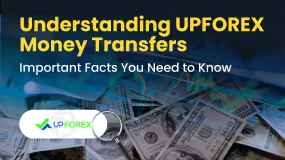Abstract:The global financial landscape has been reshaped by two dominant trading markets: cryptocurrency and foreign exchange (forex). Each offers unique opportunities, risks, and rewards, leaving traders and investors divided on which market holds the upper hand. But when it comes to choosing between them, is there a definitive answer, or does it all boil down to personal preference and risk appetite?

The global financial landscape has been reshaped by two dominant trading markets: cryptocurrency and foreign exchange (forex). Each offers unique opportunities, risks, and rewards, leaving traders and investors divided on which market holds the upper hand. But when it comes to choosing between them, is there a definitive answer, or does it all boil down to personal preference and risk appetite?

Forex is the largest financial market in the world, with a daily trading volume exceeding $7.5 trillion. Its sheer liquidity ensures that traders can execute large trades with minimal price fluctuations. Meanwhile, the cryptocurrency market, though growing rapidly, is significantly smaller, with a daily trading volume hovering around $100 billion. While crypto markets may offer dramatic price swings, they also come with increased volatility and lower liquidity for certain altcoins.

Volatility is both a blessing and a curse in trading. Forex is relatively stable, with major currency pairs moving within predictable ranges, making it a go-to market for institutional investors and those seeking lower risk. On the other hand, crypto is notorious for extreme price swings—Bitcoin, for instance, has seen fluctuations of over 50% within months. For risk-tolerant traders, this presents an opportunity for rapid gains, but it also heightens the potential for devastating losses.

One of cryptos biggest advantages is its 24/7 market operation. Unlike forex, which operates five days a week with designated trading sessions, crypto never sleeps. This provides flexibility for traders in different time zones but also requires constant monitoring, which can be mentally exhausting. Forex, however, is more structured, with high liquidity during peak trading hours, allowing traders to strategise around market movements more effectively.

Forex is heavily regulated, with central banks and financial authorities overseeing trading activities. This regulatory oversight provides traders with protection against fraud and market manipulation. In contrast, the crypto market operates in a largely decentralised manner, with varying regulations depending on jurisdiction. While this provides freedom from traditional financial systems, it also increases risks related to fraud, security breaches, and regulatory crackdowns.

Forex brokers offer high leverage, sometimes up to 1:500, allowing traders to control large positions with minimal capital. This can amplify both profits and losses. Crypto leverage is comparatively lower, but some exchanges still offer leverage of up to 1:100 on certain assets. However, due to cryptos extreme volatility, using high leverage can be a double-edged sword, leading to rapid liquidations.
The debate between crypto and forex trading is far from settled. Forex provides stability, liquidity, and regulatory safeguards, making it a safer choice for traditional traders. Crypto, however, offers decentralisation, round-the-clock trading, and the potential for astronomical gains, appealing to risk-tolerant traders and early adopters.
Ultimately, the best market depends on ones risk appetite, trading strategy, and long-term goals. Some traders choose to diversify across both markets, leveraging the strengths of each. So, which is better—crypto or forex? The answer remains subjective, and the debate will likely continue as both markets evolve.
Here is WikiFXs question: which is your preferred trading instrument?















